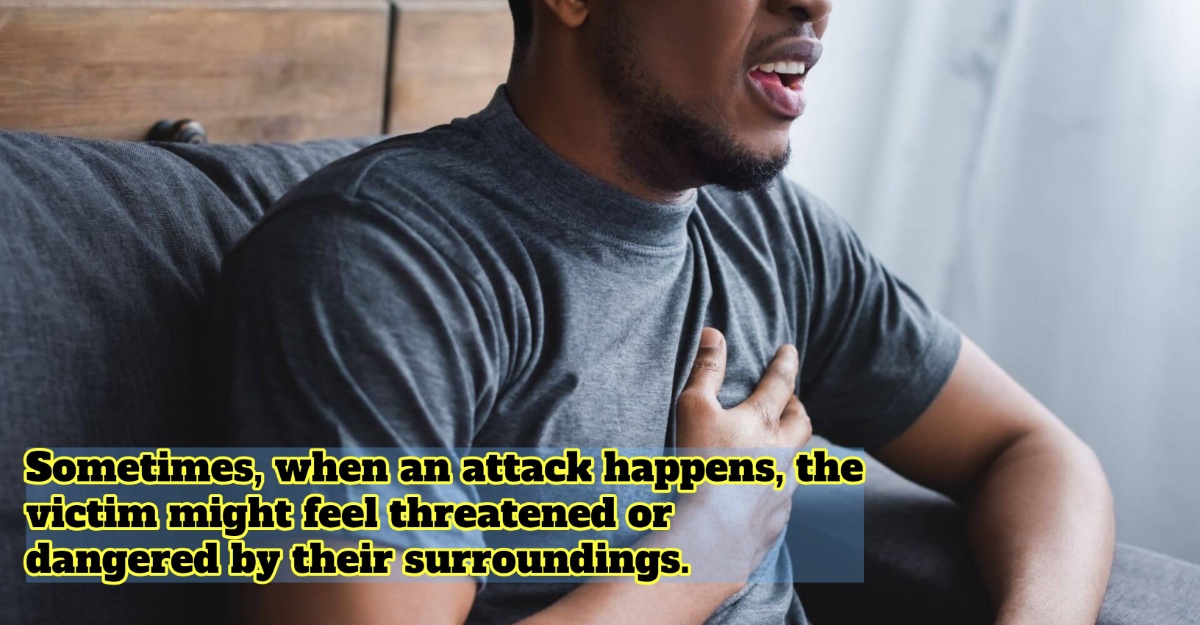Even though the world is becoming more open to mental health issues like panic attacks, bipolar disorder or PTSD, sadly, Malaysians are still sceptical about it.
Looking from the lens of religion, some might say these mental health victims aren’t adhering to their religious beliefs. It’s a common understanding among many Malaysians. Some also claimed they should seek help by praying and reciting their holy books. If a person argues mental health has nothing to do with religion, they might clap back with the same answer: everything reverts to religion.
It’s saddening to see the mentality many Malaysians have about this condition. No one wants to be ill. But some have to endure greater pain than others.
However, do we know what panic attacks are?
A panic attack is a short but intense surge of fear.
It has similar symptoms to anyone facing a threat like:
- Intense fear
- A sense of doom
- Sweating or chills
- Shaking
- Pounding heart
- Difficulty breathing
- Head and chest pain
But do take note! Not all panic attacks are the same. It differs from a typical fear response because no threat actually exists.
How to help?
As a member of society, how can we help those suffering from panic attacks?
1) Stay calm

As the ‘guide’, you should be calm. According to Sadie Bingham, a clinical worker specialising in anxiety, panic attacks usually last only five to 10 minutes.
However, someone who experiences the attack might lose the concept of time. Therefore, you must remain calm and guide them.
You can try saying these:
- “I won’t leave you.”
- “It will end soon.”
- “You’re safe now.”
2) Ask how you can help
Everyone has a different coping method. Some don’t like talking, while others want to be touched.
Ask them what you can do to make it bearable. Next, you should be patient while asking and open to accepting short to no verbal responses.
If they want you to leave, give them the space. But don’t go too far from where they are located.
3) Learn the signs
Panic attacks can begin with:
- The growing terror or dread
- Shortness of breath (hyperventilation)
- Feelings of choking
- A pounding heart
- Dizziness and shaking
Learn what the person’s signs are so that you can navigate your next move.
4) Make them feel safe

Sometimes, when an attack happens, the victim might feel threatened or dangered by their surroundings.
If words of encouragement don’t work, you might have to use grounding techniques.
Megan MacCutcheon, a therapist from Virginia, explained, “Grounding techniques can help contain panic attacks after they begin.”
The technique adverts the person’s focus on reality, not their fear of the attack.
Some grounding tips include:
- Physical touch
- Giving them an object to feel
- Asking them to move around or stretch
- Encouraging them to repeat a helpful or soothing phrase
- Talking slowly and calmly about things that are familiar to them
Take this matter seriously
If some view panic attacks as trivial, we hope you can change your mindset. Even though you don’t experience it, someone else will. And that someone might be precious to you. Please, get rid of that toxic dogma.
Therefore, we believe empathy and compassion go a long way. Always be alert to their condition and responses. Your help can make their lives better.
Source: Healthline








